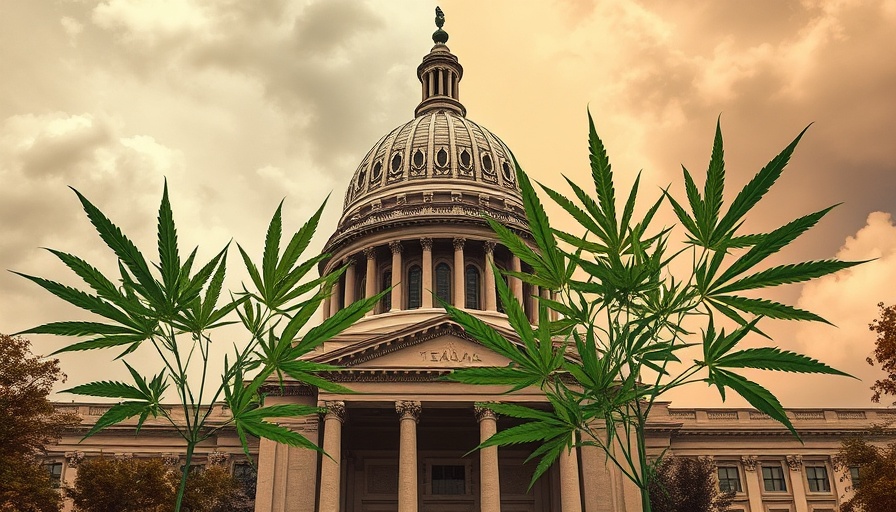
Understanding the Current Debate on Hemp Regulations
Recently, Texas lawmakers found themselves amidst a heated discussion about the regulation of hemp and its products, particularly those containing THC. This lively debate was sparked by House Bill 28, which threatens to place significant restrictions on the hemp industry that has experienced substantial growth since its legalization in 2019. As the conversation unfolded in the House Committee on State Affairs hearing, the complexities surrounding the distinctions between synthetic and natural hemp products became evident.
From Thriving Industry to Legislative Uncertainty
Advocates for the hemp industry expressed concern that the proposed regulations could backfire. Representative Dade Phelan aptly noted the difficulty in balancing recreational and medicinal uses, highlighting the uncertainty lawmakers faced. As the industry currently stands, Texas's hemp market is valued between $3 to $4 billion, driven by consumer demand for products ranging from CBD oil to hemp-derived edibles. However, the proposed bills aim to ban products with any level of THC, prompting fears of severe repercussions for local businesses and consumers alike.
The Heart of the Issue: Public Health vs. Industry Rights
The state's leadership sees their approach as necessary for public health, targeting unregulated markets that they view as hazardous. State Affairs Chairman Ken King stated, "House Bill 28 seeks to create a regulated hemp industry in Texas," underscoring a commitment to consumer safety. However, industry leaders argue this could lead to more problems than solutions. Farmers and business owners fear that imposing stricter regulations could unjustly hinder their ability to thrive while still ensuring public safety.
Voices from Both Sides: A Call for Balance
In the hearing, testimonies from industry insiders like Katie Frazier, who emphasizes a careful balance between necessary regulation and excessive restriction, echoed throughout the discussions. "You don’t clean up a room by setting it on fire," she asserted, advocating for smart regulation rather than blanket bans that harm legitimate businesses and consumers. The support for limited oversight reflects a growing awareness in Texas of the need to balance public safety with the rights of producers and consumers in a rapidly growing market.
The Future of Hemp in Texas: What’s Next?
As Texas lawmakers consider these sweeping changes, the future of hemp products hangs in the balance. Advocates argue that clarity in regulations is vital for the industry to continue flourishing, particularly for products that many consumers have integrated into their daily wellness routines. With regulations evolving, it's essential for stakeholders to remain engaged and informed about how these discussions affect their livelihoods and consumer options.
Conclusion: Get Involved in the Conversation
The current debates surrounding hemp regulation in Texas offer an opportunity for consumers, advocates, and industry stakeholders to engage in meaningful dialogue. With the potential ramifications for both public health and the economy, it's crucial to stay informed and voice your perspective in this ongoing discussion. Attend local hearings, participate in surveys, and engage with your legislators to shape the future of hemp in Texas.
 Add Row
Add Row  Add
Add 




 Add Row
Add Row  Add
Add 

Write A Comment